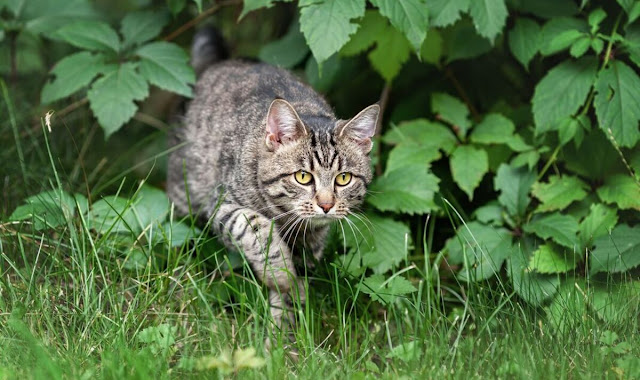cat pooping in neighbours garden why?
Cats in the garden
Cats are curious creatures by nature. They love to explore and roam around, which often leads them to our gardens. While having cats visit our outdoor spaces can be delightful for some, it can also be a source of frustration for others, especially when they use our gardens as their litter boxes. In this article, we will explore why cats may be pooping in your neighbor’s garden and provide some tips on how to address this issue.
Keeping cats out of gardens
If you’re one of the unfortunate individuals dealing with a cat pooping in your neighbor’s garden, it’s important to consider some effective strategies to prevent this behavior. Here are a few tips:
- Install physical barriers: Fencing off your garden can be an effective way to keep cats out. Opt for fences with small gaps or netting, which will make it difficult for cats to enter.
- Use deterrents: There are various cat deterrents available on the market, such as motion-activated sprinklers or ultrasonic devices. These tools emit sounds or spray water when cats approach, discouraging them from entering your garden.
- Create an unattractive environment: Cats are less likely to visit your garden if they find it unappealing. You can achieve this by using prickly plants or spreading citrus peels around the perimeter. Cats generally dislike the texture and smell of these substances.
Cat waste management tips
Even if you successfully deter cats from entering your garden, it’s important to address the underlying issue of cat waste management. Here are some tips to help you manage cat waste:
- Provide a designated litter area: If you own a cat, make sure to provide a clean and easily accessible litter box in your own yard. Cats are more likely to use a litter box if it’s conveniently located and maintained.
- Regularly clean the litter box: Cats are known for their cleanliness, and they prefer using a clean litter box. Make sure to scoop the litter box daily and replace the litter regularly.
- Consider alternative litter options: Some cats may have preferences when it comes to the type of litter they use. Experiment with different options to find the one that your cat prefers.
Dealing with feline litter habits
Understanding your cat’s litter habits can help you address the issue of them pooping in your neighbor’s garden. Here are some insights into feline litter habits:
Cats are instinctively inclined to bury their waste, which is why they may choose a garden as an alternative to a litter box. They may also be attracted to the loose soil for digging. Moreover, outdoor cats may see neighboring gardens as an extension of their territory and mark it with their waste. By understanding these behaviors, you can take appropriate measures to prevent them from using your neighbor’s garden as their personal bathroom.
Effective cat waste deterrents
Cat waste deterrents can play a significant role in keeping cats out of your garden and preventing them from pooping in your neighbor’s garden. Here are a few effective deterrents:
- Ultrasonic deterrents: These devices emit high-frequency sounds that are unpleasant to cats but inaudible to humans. Place them strategically in your garden to deter cats from entering.
- Natural repellents: Certain scents, such as lavender, rosemary, or citrus, are known to repel cats. Planting these herbs or placing their essential oils in your garden can deter cats from coming near.
- Water deterrents: Cats typically dislike getting wet. Using motion-activated sprinklers or simply spraying water when you spot a cat in your garden can be an effective deterrent.
Maintaining a cat-friendly garden
If you’re a cat lover and want to create a garden that is both appealing to cats and prevents them from pooping in your neighbor’s garden, here are some tips for maintaining a cat-friendly garden:
- Create a dedicated play area: Set aside a designated area in your garden where cats can play, roam, and dig. This will encourage them to use that space instead of venturing into your neighbor’s garden.
- Provide a litter-friendly environment: Place a litter box in your garden, preferably in a quiet and secluded spot. This will give cats an alternative to using your neighbor’s garden for their business.
- Plant cat-friendly plants: Certain plants, such as catnip or cat grass, can attract cats and provide them with a stimulating environment. By incorporating these plants into your garden, you can divert cats’ attention away from your neighbor’s garden.
Garden cleanliness and cats
Keeping your garden clean and well-maintained can also discourage cats from choosing it as their litter box. Here are a few tips to maintain garden cleanliness:
- Regularly remove cat waste: If you come across cat waste in your garden, make sure to remove it promptly. Leaving it in the garden may attract cats to revisit the area.
- Keep the garden tidy: Cats are less likely to visit a garden that is regularly maintained. Trim overgrown plants, clear clutter, and create an environment that is less appealing to cats.
- Consider water features: Cats are generally averse to water. Installing a water feature like a small pond or fountain can deter them from entering your garden.
Cat behavior in gardens
Cats are known for their independent nature, and their behavior in gardens can vary. Here are a few common behaviors exhibited by cats in gardens:
Marking territory: Cats may use a garden to mark their territory by spraying urine or leaving their feces. This behavior is more common among outdoor and unneutered cats.
Hunting: Gardens often attract small prey like birds or rodents, which can be a tempting hunting ground for cats.
Exploration: Cats are naturally curious and love to explore new spaces. Your neighbor’s garden may be inviting to cats due to its unfamiliar scents, plants, or structures.
Conclusion
Dealing with a cat pooping in your neighbor’s garden can be a frustrating situation. By understanding the reasons behind this behavior and implementing some effective strategies, you can prevent cats from using your neighbor’s garden as a litter box. Whether it’s creating physical barriers, using deterrents, providing a litter-friendly environment, or maintaining garden cleanliness, there are several approaches you can take to address this issue. Remember to approach this problem with empathy and respect for both your neighbor and the cats involved.













